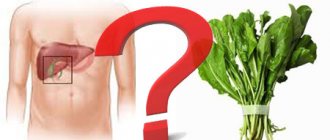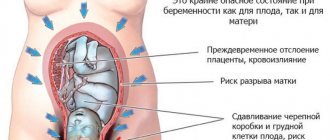Often grandmothers, neighbors and even online forums come to the rescue, and sometimes a young mother has to rely only on herself. What, for example, should you do if your baby refuses to eat or eats very reluctantly? After all, a baby only needs to lose 10% of its weight (which is 500-700 grams) to be on the verge of death! How to deal with the problem yourself or understand that the baby needs the help of a doctor, says the book of the famous pediatrician, 1st category doctor Yuri Belopolsky, “Emergency Care at Home. Mom makes a diagnosis.” We are publishing an excerpt from this book.
Should I worry?
A person’s appetite depends on a number of factors, primarily determined by individual metabolic characteristics. A child's appetite is controlled by the body's needs. The growth process of a child is not uniform: in the first year of life, in adolescence, growth hormone, thyroid and parathyroid hormones, sex hormones are produced in larger quantities, the child grows actively, and appetite increases. Appetite also depends on the level of energy expenditure: the more energy a child spends, the better his appetite. Changes in appetite are normal as long as your child is active and growing normally. However, a lack of appetite in a child who appears unhealthy or is growing slower than expected should be a cause for concern and a visit to the doctor.
How to whet your appetite
Some parents are interested in the question of what to give their baby so that he has a normal appetite. However, this issue does not always need to be resolved by taking medications. They are appropriate in a situation where the baby is really sick and the recommended therapy in this case is prescribed by a doctor.
Let's figure out how to increase a child's appetite, which parents can do in such a situation.
- If the baby refuses a new dish, then you can decorate it, making it more interesting for the child, captivating his attention.
- If the toddler refuses new food or a certain product, for example, without even trying it, then you can try to agree that the child eats at least half a spoon. The next day, offer him another half spoon; over time, the baby will be able to get used to the specific taste and will no longer resist this food.
- A child who is in an age-related crisis period may protest if he is not given the right to choose. It will be better if you ask your little one what he wants for lunch, for example, buckwheat or rice porridge, with chicken or meatballs. If the baby can make a decision himself, his mood will significantly improve and his appetite will appear.
- If you realize that your little one is inactive and simply doesn’t spend enough energy, correct the situation. Let the child be outdoors more often and play actively. It can also be given to certain clubs or sports sections.
- If a child has a pathological process, the doctor prescribes special treatment.
- If serious stress appears in your toddler’s life, you can visit a child psychologist.
- You can add foods to your child’s diet that increase appetite, for example:
- fruits, berries or juices from them (in particular, cherries, apples, pears, currants), which are given half an hour before meals - these products provoke the production of gastric juice, which leads to a feeling of hunger;
- consuming honey also improves appetite, in addition, it strengthens the toddler’s immunity;
- fennel and mint in the form of tea. Give to the baby 20 minutes before meals. A one-year-old toddler should be given no more than one teaspoon.
Possible causes of poor appetite
► Lack of a constant feeding schedule. If the child is not used to eating at a certain time.
► Sweet snacks. The more sweets your baby eats between meals, the harder it will be to get him to eat a bowl of soup or a vegetable dish.
► Illnesses of the child. When an illness occurs, a child’s appetite decreases significantly, as all the body’s strength is spent fighting the disease. In this case, you should not force food on your baby.
► Emotional experiences. During these periods, parents' attention should be focused on the child's condition, and not on the amount of soup he has eaten.
Is it necessary for parents to be present during meals?
The answer to this question depends on the child’s habits and desires and on how skillfully parents can hide the external manifestations of their anxiety. If before this they always sat next to him, then their departure will upset the child. Provided that the parents are friendly and calm towards the child and the way he eats, it is better to sit with him at the table. If parents are unable to control their emotions and constantly feel the desire to force the child to eat, then it is better to leave the stage for this time, and not demonstratively, but tactfully and gradually, increasing the time of their absence by several minutes a day so that he does not notice difference.
Is there a risk of malnutrition?
There is little risk that a child who restricts his diet will lack nutrients. The child's body will not starve if food is available. The need for a certain amount of food is expressed in thermal units - calories (the amount of heat that can increase the temperature of 1 liter of water by 1 ° C). The Institute of Nutrition of the Academy of Medical Sciences of Russia recommends caloric expenditures for children of different ages:
► From 3 to 5 years - 1500 kcal.
► From 5 to 8 years - 1800 kcal.
► From 8 to 12 years - 2000 kcal.
► From 12 to 16 - 2400 kcal.
Why does a small child lose appetite: physiological and pathological reasons
Read the original publication on mjusli.ru
Children's appetite, alas, does not always satisfy parents. And despite the fact that the baby’s body is rapidly growing and developing, the child himself may flatly refuse to eat. Some children throw real tantrums when trying to feed them, especially when it comes to foods that are so healthy for them, such as cereal, meat, fish or vegetables.
But it also happens that before the child’s appetite was quite healthy and corresponding to his energy expenditure, and then suddenly disappeared. Is it really worth worrying about your baby refusing to eat?
- Loss of appetite in a baby: what can it signal?
- Gastrointestinal problems
- Loss of appetite “due to illness”
- Reviews and comments
The reasons why a child's appetite is suppressed can be very diverse. Among them, there are both physiological and pathological reasons. Mother Nature has thought out in detail how much food little children need for their gradual growth and development.
It is known that the baby’s body undergoes the most rapid leap in this regard before the age of one year. Those who breastfeed on demand know how often the baby asks to eat.
Imagine that the appetite was awakened with the same frequency in an already grown-up baby. In this case, he would risk quickly turning into the likeness of Winnie the Pooh. Therefore, the physiological suppression of appetite that occurs by two or three years of life is absolutely justified and logical.
What are other reasons why a child has lost his appetite?
Most often, children lose their appetite for the simple reason that they do not accept certain foods that are present in the proposed dish.
Our taste preferences change throughout our lives, and therefore if your child categorically refuses to eat cereals and cereals, this does not mean that such hostility will persist throughout his life.
In addition, put yourself in the child’s shoes and think about the fact that there are no irreplaceable products.
For example, you openly hate beets and everything connected with them. But you are forcibly “stuffed” with it, citing the fact that it contains coarse fibers for normal stool and optimal bowel function. But aren't they also found in other vegetables and fruits that you like better? Respect your baby's preferences from an early age.
Many parents make a huge mistake when trying to control what their child eats. Many even give ultimatums like “you won’t leave the table until you finish your corn porridge!” Not only will such actions cause a real aversion to the product in the developing personality, but they can also become catalysts for eating disorders.
Did you know that from a psychological point of view, childhood habits are to blame for most cases of obesity?
A person carries them into adulthood, subconsciously remembering his mother’s parting words about a “society of clean plates.” So, he begins to consume food even when he does not feel hungry.
At the same time, the stomach naturally stretches, as a result of which a person begins to consume more and more food.
The result is preobesity and obesity, as they say, “comes from childhood,” because parents instilled the need to eat everything, even if there is no hunger.
Rest assured - if your baby has not finished his portion, and his body requires replenishment, he will come to finish his food after a while. Fractional meals, by the way, are much more useful for the development of metabolic processes than eating at a certain time and certainly in large portions.
Gastrointestinal problems
Why does my child still lose his appetite?
This may be due to dysfunction of the digestive system and gastrointestinal tract.
- Food allergies often involve aversions directly to triggers. That is, if your baby is allergic to milk, he will stubbornly refuse to drink it. Lactose intolerance is one of the most common problems in childhood, but other reactions also occur. You must monitor your baby's condition by introducing different foods into his complementary foods, and do this very carefully. Allergies cannot be classified as gastrointestinal pathologies, but they can provoke gastroenterological symptoms – nausea, vomiting, diarrhea, etc.;
- Intestinal infections may not manifest themselves in any way during the incubation period. But, unlike ourselves, the internal mechanisms of our body are much more cunning. As soon as it recognizes foreign cells that can cause harm, it begins to actively fight them. At the same time, he throws all his energy reserves into this struggle, trying not to waste it in vain. And since quite a lot of energy resources are spent on digesting food, the “smart” body simply begins to block hunger so as not to waste energy. In general, this point applies not only to intestinal infections, but also to any other similar diseases;
- Poor absorption complex. If your baby suffers from a complex of poor digestion of food, this is expressed in loss of appetite, lethargy, and apathy. The child stops gaining weight, and sometimes even begins to rapidly lose weight. This phenomenon is often confused with food allergies, but it is important to differentiate one from the other in order to begin timely treatment;
- Iron-deficiency anemia. When a child receives little iron from food, almost all the most important processes in his body are disrupted. In particular, the processes of assimilation and digestion of food. With anemia, the baby's skin becomes pale, and sometimes circles under the eyes begin to form. He himself becomes apathetic, lethargic and complains of fatigue at the slightest effort. Anemia requires urgent treatment, otherwise it can affect the child’s health and functioning in the most negative way. What is also noteworthy is that with anemia, a child feels indifference to traditional food intake, but he willingly eats inedible things, such as chalk, lime and other similar materials;
- Constipation. With constipation, health deteriorates sharply not only in adults, but also in children. Why? Because feces that are not passed through the stool release toxic fluids that are easily absorbed into the blood and poison it. And again, the body wastes energy precisely on fighting toxins and waste, and not on digesting food. The child may also develop a fear of bowel movements. The trigger for this can be any factor - from a cold toilet lid to constipation with a stopper in the past. Intuitively feeling the need to defecate after eating, the child begins to eat less and less so that the urge does not arise.
What to do if your baby’s loss of appetite seriously worries you? It is worth contacting a pediatrician and being thoroughly examined, especially if this symptom is associated with other, no less alarming manifestations of disorders in the body.
Loss of appetite “due to illness”
With any disease, including “harmless” acute respiratory viral infections and acute respiratory infections, we naturally lose the feeling of hunger for the reason already explained. At the same time, it is necessary to nourish the body so that its strength to fight viruses and infections is replenished. Therefore, it is important to organize a certain food regimen if your baby refuses to eat due to illness.
What to do if your child loses his appetite due to illness:
- Organize him to drink plenty of fluids, and it is better to give him not only water or tea, but also meat broth;
- Avoid heavy protein-containing foods in your baby's diet;
- If possible, provide your child with easily digestible vitamins present in food;
- Offer your child some of his favorite foods, even if you think they are harmful. This will help whet his appetite;
- Try to serve your baby food in light forms - liquid, pureed. This is necessary so that the body quickly absorbs it and does not waste energy on thorough digestion.
Respect your child’s opinion, and under no circumstances force him to eat something he doesn’t want to eat.
Listen to your baby’s body, monitor his behavior and well-being. If there are any additional pathological signs, do not hesitate to diagnose and consult a doctor. If they are not there yet, try to simply adjust the diet, offering your child what he likes or accepts.
Be attentive to your child and do not force him to do something he does not want to do. In particular, consume foods that are unacceptable to him. Remember that in his case there may be an allergy, and not a banal whim. And if you force-feed your baby an allergen, you will cause a significant deterioration in his condition, even to the point of anaphylaxis.
Let your child be healthy and happy!
Source: https://lenta.co/pochemu-propadaet-appetit-u-malenkogo-rebenka-fiziologicheskie-i-patologicheskie-prichiny-120140
Children and vegetarianism
Most experts believe that a child's food should be mixed (meat-dairy-vegetable) with sufficient amounts of vitamins and minerals, and do not recommend vegetarianism for children. Plant foods have a number of advantages, but cannot replace meat, fish, milk, and eggs in a child’s diet. These products contain substances necessary for the child that are not found in plant foods. First of all, these are complete animal proteins, some vitamins and minerals: B vitamins, vitamin D, calcium, iron, zinc. Fish is a source of vitamins PP, group B, as well as phosphorus. A lack of these substances threatens the child with anemia and decreased hemoglobin, which in turn leads to a deterioration in the supply of oxygen to tissues. Vegetarianism is contraindicated for children with low hemoglobin levels.
Proponents of vegetarianism believe that a growing body feels better in the absence of meat food. It has been proven that people who adhere to vegetarianism are less likely to develop diseases of the cardiovascular system and certain types of cancer. Vegetarians practically do not suffer from obesity. A vegetarian diet is high in dietary fiber, vitamin C and beta-carotene. This diet does not contain animal fat - a source of cholesterol and saturated fats, which cause the formation of specific deposits on the walls of blood vessels - atherosclerotic plaques, which narrow the lumen of the vessel and impair blood circulation in tissues and organs.
Families that embrace vegetarianism should take special care to ensure that the child’s body receives all the necessary substances.
A lack of any nutrients can affect growth retardation, physical and mental development, as well as disruption of the formation of the bone skeleton and teeth. This is especially true for children of primary school age.
Why might a child have a poor appetite?
, babies may experience a decrease in appetite due to teething , acute illness, hot weather, or stress . It must be remembered that after the first year of rapid development, at 2-4 years of age, the child’s growth and weight gain slows down sharply, especially in children with uneven growth spurts (which is genetically determined). Therefore, appetite at this age is often selective and capricious. Children in general are often too fussy about food, and therefore parents worry that their children are malnourished. And they begin to persuade them to eat a spoon “for mom”, therefore a spoon “for dad”. Thus, the child stops picking up his own body signals that warn him of satiety.
There are studies showing that children, even very young ones, have a sense of the quantity and quality of food they need at a given moment. These are their built-in biological rhythms and needs, although they can also malfunction. It may happen that the foods your child dislikes and rejects actually turn out to be allergens or are poorly digestible, and by forcing them to eat, you thereby increase stress for both yourself and the child. In the baby's experiences, the feelings of satiety, security and love are closely related.
When a child goes to school, it becomes more difficult to keep track of his nutrition, but it is possible. Because if you don’t pay attention at all, problems may arise associated with weight gain, even obesity, in those adolescents who lead a sedentary lifestyle , or, conversely, severe weight loss. Problems in nutrition can lead to growth retardation, iron deficiency and iodine , impaired development of bone tissue, etc. Ulcers, gastritis, decreased attention , memory may form, and chronic fatigue and fatigue in class may also appear.
Should I force my child to eat?
Never, under any pretext, force your child to eat. If you force your child to eat something he doesn't like, conflict may occur. Continue to offer him a variety of foods, but don't get angry or upset if he refuses it.
Check whether the child eats additional sweets, etc. between meals. If your child looks sick or is growing slower than expected, consult a doctor. It should be remembered that what is much more dangerous for health is not a temporary refusal to eat, but an excessive or monotonous diet.
Causes of poor appetite in breastfed children
Difficulties arise in weak, premature babies. Constant sleep is needed, the body requires rest, and in sleep it gains strength. In this situation, young mothers are advised to have a free diet. The child eats on demand, not according to a schedule. Do not force the baby to eat more than the body requires; offer a sufficient amount of food. Supplementation is simple - a spoonful of expressed milk, up to 3 months.
Poor appetite in infants aged 1-8 months
As a baby grows up, it loses its appetite. Not gaining weight, not active. The parent, in a panic, takes the temperature and monitors the baby’s bowel movements. In the described situation, only a doctor is able to discover the true cause of what is happening. A visit to the clinic should be immediate.
There are a number of known reasons for refusal to eat in children aged 2-8 months:
- Colds. Loss of interest in food appears before symptoms of the disease appear. The baby is hungry, but can latch on to the breast in his sleep.
- Diseases in the oral cavity: stomatitis, thrush. Pathology is determined by white plaque on the gums. The mucous membrane becomes redder and small ulcers form. The baby is in pain and cannot eat. Symptoms require surgical treatment.
- Physical activity is low. Parents should go outside with their child more often, let him move more, do massage and gymnastics.
- Painful cramps in the tummy - colic. Symptoms are defined as follows: pulls the legs to the stomach, does not take the chest. Often observed in infants at 4-6 months of age. Drops prescribed by a doctor will help the baby, mommy presses the baby’s tummy to her and calms him down. If you follow a diet and normal breastfeeding regimen, colic occurs less frequently.
- Teeth are being cut. Starting at 5 months, babies begin to erupt their baby teeth. When teething, discomfort occurs in the mouth. The baby is capricious and refuses to eat. To relieve discomfort, infants are given a teether to chew on, and the gums are lubricated with a special gel that cools and soothes the inflamed mucous membrane.
Lactation and mother's habits
A small volume of milk in the mother's breast leads to poor appetite. This occurs due to improper attachment to the breast. Consulting a medical specialist will help you cope with the problem. A young mother must follow a diet, drink a sufficient amount of liquid per day, apply the baby correctly and often first to one breast, then to the other, drink tea with fennel.
Poor appetite in a newborn is associated with a number of situations:
- There is a lot of milk, the baby gets scared of the sudden splashes and stops suckling. Before you start feeding, you need to express a little milk.
- Cracked or very flat nipples also make eating difficult. Unexpressed nipples cause colic in the baby; he has difficulty latching on to the breast and, along with the milk, air enters the baby’s stomach, causing spasms in the intestines.
- The baby will refuse the breast if there is a strong and pungent smell of perfume or deodorant. During the breastfeeding period, mothers should stop using perfume.
- While breastfed, the baby is sensitive to changes in the taste of milk. When taking medications, dietary supplements, or dishes with spices, the taste of milk changes, and the baby, sensing the changes, refuses to eat. During breastfeeding, you should avoid carbonated drinks, spicy, smoked and fatty foods.
- Refuses to eat, the reason is otitis media. It is detected by external symptoms: the baby actively shakes his head, he cannot touch his earlobes. This is a serious symptom. A pediatrician will help you cope with the disease; if the child is constantly crying and restless, you should immediately call an ambulance.
- The nose is breathing poorly. A cold clogs the baby's nose, which leads to difficulty breathing through the nose, which causes poor appetite in babies.
How to improve a child's appetite?
► Intensify the child’s energy expenditure: he benefits from physical education, active games, walks in the fresh air, and it is also necessary to prevent overheating.
► Do not overfeed. Do not force him to eat, so as not to cause a feeling of aversion to food. Should I force my child to eat?
► Parental example is the best remedy for a child’s poor appetite. If possible, have lunch as a family. Eat with appetite the same food you offer him.
► Sweets and snacks are the enemy of good nutrition. Offer your child sweets only after the main course, for tea. If your child gets hungry between meals, offer him fruit, nuts or dried fruit.
You can read the author of the book, pediatrician Yuri Belopolsky in the CONFERENCES section >>>
Babies in their first year of life do not yet know the words “I don’t want.” For them, food is a vital necessity. Refusal from lunch and the hated semolina porridge will come later, if at all, and it will be necessary to deal with it in a completely different way than with the loss of appetite in a baby in the first months of his life.
Interesting:
Appetite (from Latin appetitus - desire, desire) is a feeling associated with the need for food, as well as a physiological mechanism that regulates the intake of nutrients into the body.
There are 7 main reasons for decreased appetite in a breastfed baby.
- Oral diseases.
If a baby has developed stomatitis, thrush, or has inflamed gums due to teething, it simply hurts for him to grasp the nipple and eat.
What to do?
Seek advice from a specialist and carry out the necessary treatment. - Runny nose.
A stuffy nose is one of the most common causes of decreased appetite in children.
Even if the child is hungry, the feeding process is associated with inconvenience, because breathing is difficult. What to do?
Seek advice from a specialist. - Otitis.
When the ear becomes inflamed, the sucking process becomes very painful.
And if the body temperature also rises, then appetite disappears completely due to intoxication. What to do?
At the slightest suspicion of otitis media, immediately consult a specialist. - Throat diseases.
Pharyngitis, tonsillitis and laryngitis are very unpleasant things.
And even if the baby does not have a cough, this does not exclude their presence. The baby may suck with pleasure, but it hurts to swallow. And again: when the temperature rises, he has no time to eat at all. What to do?
Seek advice from a specialist and carry out the treatment prescribed by him. - Enhanced peristalsis.
Mothers know that the baby can soil the diaper after each feeding: sucking triggers the process of intestinal contractions.
Sometimes in babies, peristalsis and gas production increase so much during feeding that they feel pain - and there is no time to eat. Among other things, these symptoms may be manifestations of food intolerance or other problems. What to do?
Contact your pediatrician. On the recommendation of a specialist, you can give your baby special medications before meals. Massaging the baby's tummy clockwise and feeding while lying down - skin to skin - can help ease the baby's condition. - Taste of milk.
It is known that the taste of breast milk largely depends on what the mother eats.
The taste of milk can be influenced by a woman’s hormonal status, physical activity, psychological state and, of course, the use of cosmetics in the breast area. What to do?
Review your daily diet and limit the use of cosmetics before feeding. If necessary, seek advice from a specialist. - Individual characteristics of the mother.
Sometimes a baby’s poor appetite is due to the fact that it is simply difficult for him to get to the milk or, on the contrary, the breast is too full and he cannot latch onto the nipple.
What to do?
Look for a position that is comfortable for the baby, apply it to the breast more often, and seek help from a lactation consultant.
As you can see, the main reason for poor appetite in infants is illness in one form or another.
Often, illnesses in infants are hidden - and the only symptom is refusal to eat (for example, with a disease such as pyelonephritis - inflammation of the kidneys). Therefore, a sharp decrease in the baby’s appetite or his refusal to eat at all should always alert the mother and serve as a reason to contact a specialist.
However, there are situations when poor appetite is not associated with malaise. So, appetite may decrease because the daily routine has changed.
Listen to your baby, watch him. It is important to learn to understand what is an individual feature of his appetite - leisurely long-term sucking or rapid, rapid sucking, and what is “acquired” due to malaise, illness or changes in lifestyle.
Improving the baby's appetite
- Daily active bathing with elements of swimming.
- Long walks in the fresh air.
- Gymnastics, including dynamic.
- Stimulation of motor and cognitive activity - games, crawling.
Komarovsky's advice
If your child refuses soup for lunch, you shouldn’t rush to cook him something else. There's no point in scolding either. Let him “work up” his appetite. The only thing that can overcome selective appetite is the feeling of hunger. When it becomes real and strong, the poured soup will cause a lot of delight and will be quickly eaten without any persuasion. The main thing is to offer your child the same soup at the next meal, and not another dish.
Such “easy prey” should not be within his reach. This rule must be followed by all family members, it will be especially difficult for grandparents, but we must stick to it.
You should not impose your eating routine on your baby - your breakfast, lunch and dinner may not coincide with his routine. Try not offering him food at all for at least a day. At the same time, walk, play in the air, but don’t say a word about food. The child will ask for food himself and will eat everything you offer him with excellent appetite.
You will learn more about what to do if your child does not want to eat in the following video.









